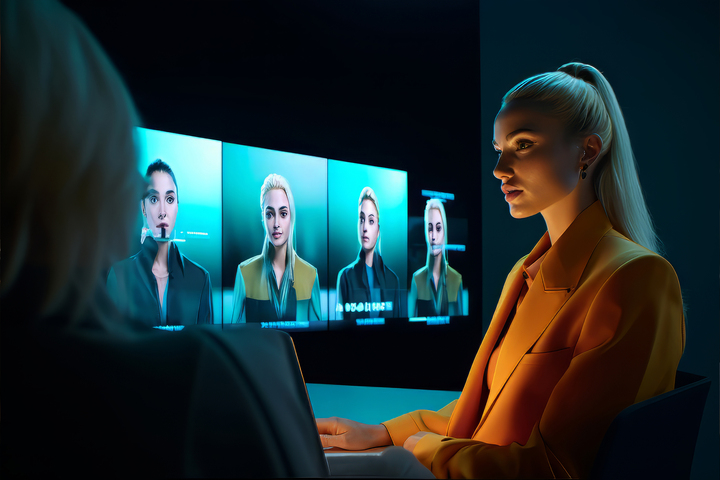Next-Gen Viewing: How AI Video Search is Changing How We Watch
Body

The way we consume video content has transformed dramatically in recent years. Traditional television viewing is being replaced by on-demand streaming services, and the volume of available video content has exploded. Amidst this content overload, finding the right video at the right time can be challenging. Enter AI video search – a technological advancement poised to revolutionize how we discover and consume video content. This article explores the impact of AI video search on viewing habits, its benefits, and what the future holds.
Understanding AI Video Search
What is AI Video Search?
AI video search leverages artificial intelligence and machine learning algorithms to analyze and index video content. Unlike traditional search methods that rely on metadata and tags, AI video search dives into the actual content of the video. It examines visual and audio elements, including speech, text, objects, and scenes, to provide a more accurate and comprehensive search experience.
How Does AI Video Search Work?
AI video search systems use several advanced technologies to analyze and understand video content:
- Speech Recognition: Converts spoken words within the video into text, allowing users to search for specific dialogues or spoken content.
- Image Recognition: Identifies objects, faces, and scenes within the video, making it possible to search for visual elements.
- Natural Language Processing (NLP): Analyzes and interprets text data from subtitles, descriptions, and other textual elements associated with the video.
- Deep Learning: Utilizes neural networks to understand complex patterns and features within the video, improving search accuracy over time.
Benefits of AI Video Search
Enhanced Discoverability
AI video search dramatically enhances the discoverability of video content. By analyzing the actual content of videos, AI can surface relevant results that traditional keyword-based searches might miss. This ensures that users can find the most pertinent and engaging content, even if it's buried deep within a video library.
Improved User Experience
For viewers, AI video search translates to a significantly improved user experience. Instead of sifting through endless lists of videos, users can quickly find the exact moment or scene they are interested in. This precision and efficiency make for a more enjoyable and less frustrating viewing experience.
Content Personalization
AI video search enables highly personalized content recommendations. By understanding a viewer’s preferences and viewing history, AI can suggest videos that align with their interests. This personalization keeps viewers engaged and encourages longer watch times, benefiting both users and content providers.
Monetization Opportunities
For content creators and streaming platforms, AI video search opens up new monetization opportunities. By making content more accessible and engaging, AI can drive higher viewer retention and satisfaction. This, in turn, can lead to increased subscriptions, ad revenue, and brand loyalty.
Accessibility
AI video search also enhances accessibility for viewers with disabilities. Speech recognition and text analysis can generate accurate subtitles and transcriptions, making content more accessible to those with hearing impairments. Additionally, visual recognition can help create detailed descriptions for visually impaired users.
Real-World Applications
Streaming Services
Major streaming platforms like Netflix, YouTube, and Amazon Prime Video are already leveraging AI video search to improve content discoverability. By analyzing viewer behavior and video content, these platforms can offer more accurate and engaging recommendations, keeping viewers hooked.
Educational Platforms
Educational platforms benefit significantly from AI video search. By indexing lecture videos, tutorials, and other educational content, AI makes it easier for students and educators to find specific topics or segments. This enhances the learning experience and makes educational resources more effective.
Corporate Training
In the corporate world, AI video search is transforming training programs. Companies can index training videos, webinars, and presentations, allowing employees to quickly find and review relevant information. This improves knowledge retention and makes training programs more efficient.
News and Media
News organizations use AI video search to sift through vast amounts of video footage, identifying key moments and relevant clips. This technology accelerates the news production process and ensures that important content is highlighted and easily accessible.
The Future of AI Video Search
Integration with Augmented Reality (AR) and Virtual Reality (VR)
As AR and VR technologies become more prevalent, AI video search will play a crucial role in these immersive experiences. AI can help users navigate and discover content within virtual environments, enhancing the interactivity and engagement of AR and VR applications.
Real-Time Search Capabilities
Future advancements in AI video search will likely include real-time search capabilities. This means that users can search for and access specific content within live video streams. Such functionality could revolutionize live sports, events, and news broadcasts, offering viewers unprecedented control over their viewing experience.
Multilingual and Cross-Cultural Search
AI video search will continue to improve its multilingual and cross-cultural capabilities. By understanding and indexing content in multiple languages, AI can bridge language barriers and make global content more accessible. This will be particularly beneficial for international streaming services and multicultural educational platforms.
Ethical Considerations and Data Privacy
As AI video search technology evolves, so too will the ethical considerations and data privacy concerns. Ensuring that AI systems are transparent, unbiased, and respectful of user privacy will be crucial. Developers and platforms must prioritize ethical AI practices to maintain user trust and confidence.
Conclusion
AI video search is reshaping how we discover and consume video content. By enhancing discoverability, improving user experience, and offering personalized recommendations, AI is making video content more accessible and engaging than ever before. As technology continues to advance, we can expect AI video search to play an even more integral role in our viewing habits.
For those looking to explore the possibilities of AI-driven video search, platforms like RightAITools provide a comprehensive directory of AI solutions tailored to various industries. By embracing AI video search, content creators, streaming platforms, and viewers alike can unlock new levels of engagement, personalization, and efficiency in their video experiences.













Comments